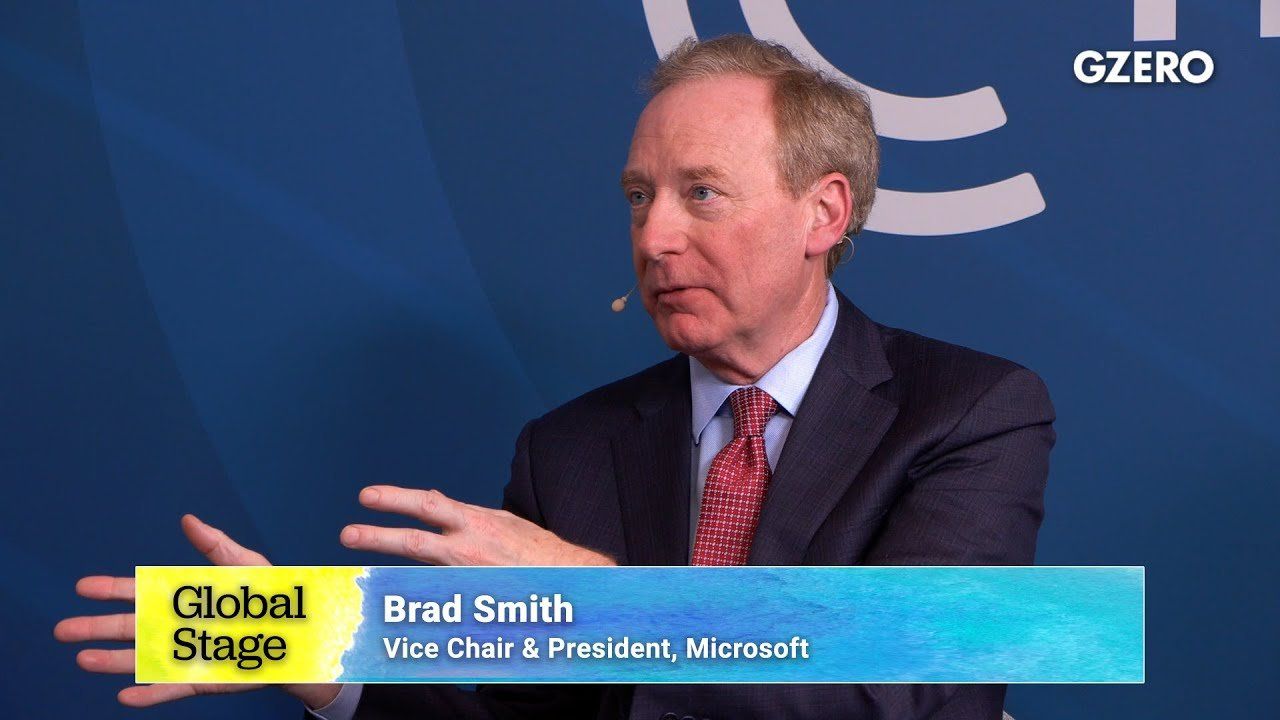Digital Governance
Can the US stay ahead of China on AI?

Charging ahead for the future of AI | Global Stage | GZERO Media

Microsoft’s partnership with OpenAI and DeepMind is at the forefront of maintaining America’s edge in artificial intelligence.
But can America stay ahead of China in the push for AI leadership? Nic Robertson, CNN’s international diplomatic editor, puts the question to Microsoft Vice Chair and President Brad Smith during a Global Stage livestream conversation hosted by GZERO in partnership with Microsoft at the Munich Security Conference.
Smith says that while the US is currently in the lead, it’s only by a matter of months. He explains that Microsoft is in a constant race with the Beijing Academy of Artificial Intelligence and companies like Baidu. “There is no reason to assume that one country or the other will have a sustainable leadership position,” he says. “We’re all going to have to keep racing ahead.”
While both the US and China will continue competing for the top spot, the true advantage will go to the one that can deploy AI both quickly and, Smith says, “in a manner that will both lead to its ongoing improvement and the productivity of their economies more generally.”
Watch the full Global Stage conversation from Munich here: https://gzeromedia.com/globalstage
Tune in on Saturday, February 14th at 12pm ET/6pm CET for the live premiere of our Global Stage from the 2026 Munich Security Conference, where our panel of experts takes aim at the latest global security challenges.
In this Quick Take, Ian Bremmer weighs in on the politicization of the Olympics after comments by Team USA freestyle skier Hunter Hess sparked backlash about patriotism and national representation.
In July 2024, Keir Starmer won the United Kingdom’s election in a landslide. It has been downhill ever since, with Starmer’s premiership sullied by economic stagnation, intraparty fighting, and a lack of vision for the country.